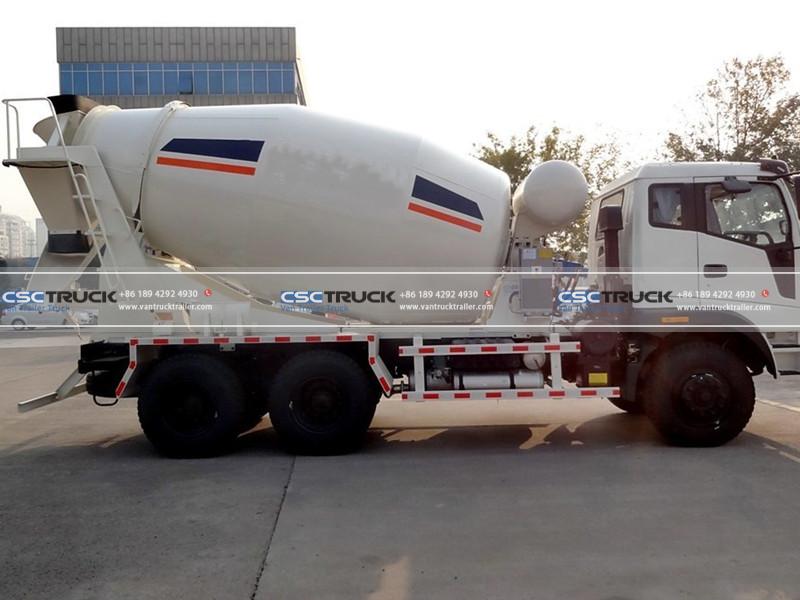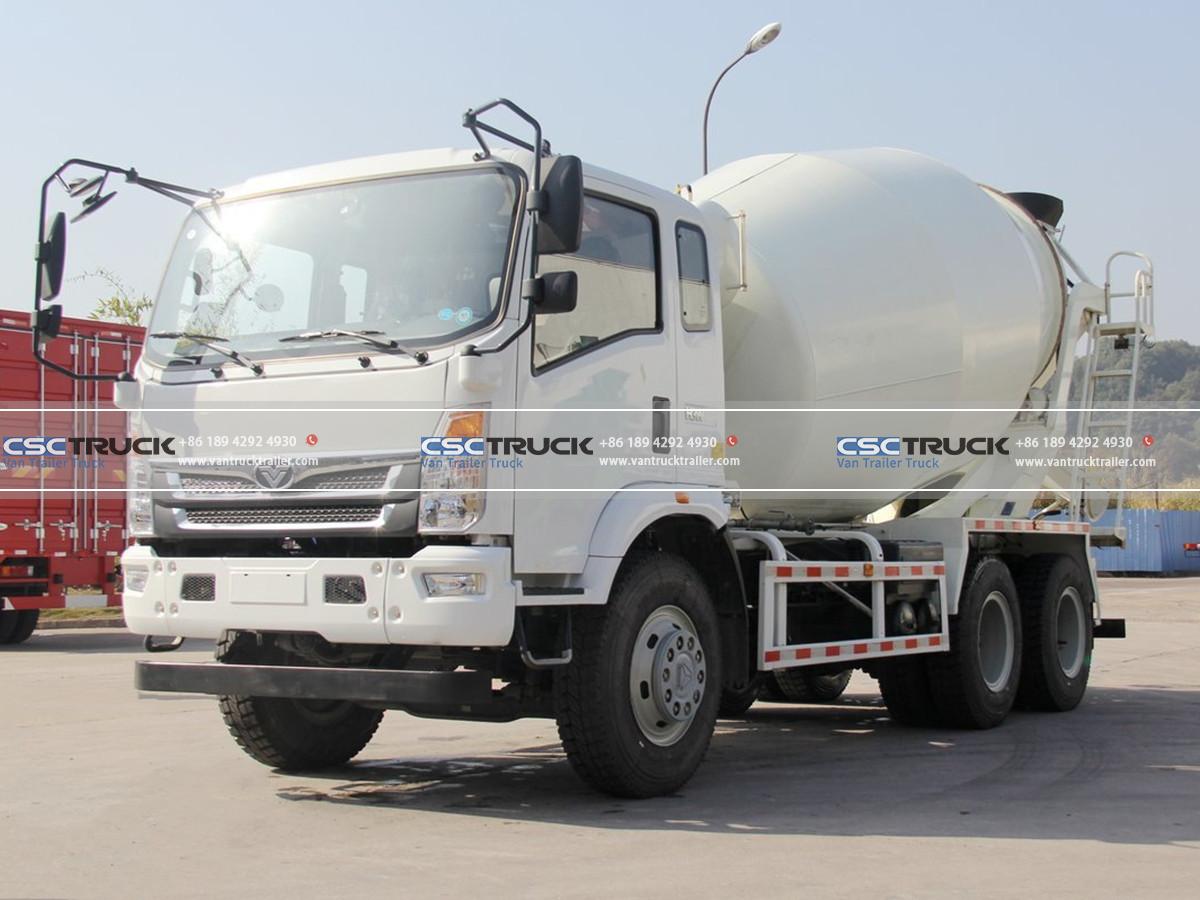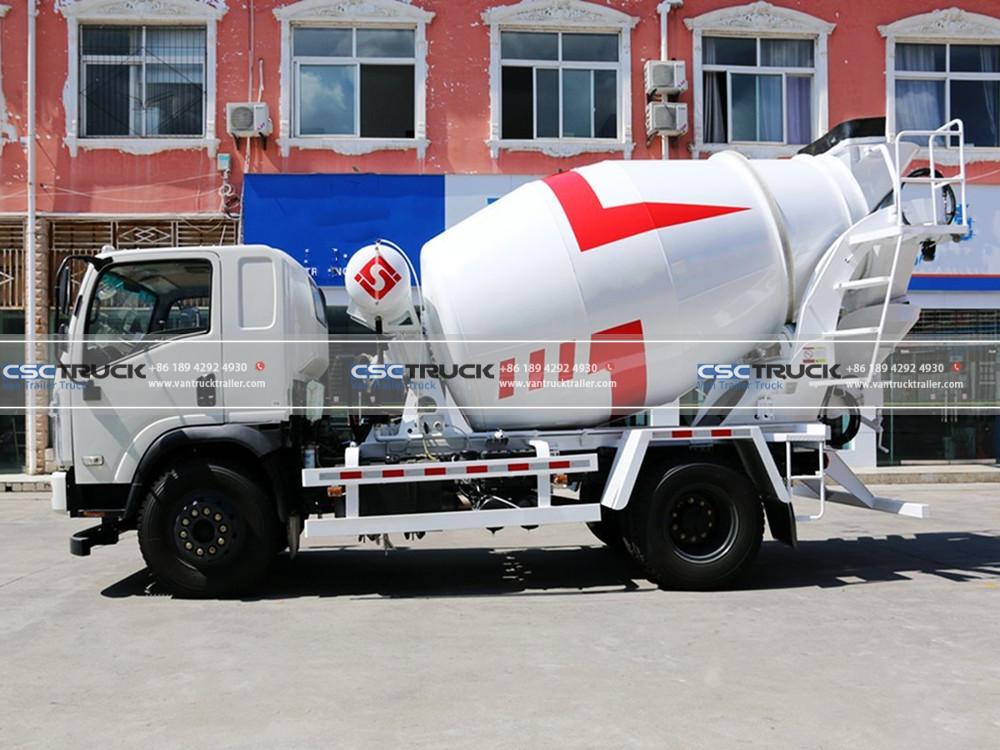In the fast-paced world of construction, time and precision are paramount, especially when it comes to the delivery of concrete. The mixer truck has emerged as an indispensable tool in ensuring that concrete is delivered efficiently, in the right condition, and at the right time. These trucks are designed to transport pre-mixed concrete from batching plants to construction sites, and their role extends far beyond simple transportation. The mixer truck provides the reliability, flexibility, and speed necessary for the smooth operation of a construction project, whether it’s a residential development, a highway project, or a large-scale infrastructure initiative.
This article explores why mixer trucks are essential for efficient concrete delivery, how they function within the construction logistics ecosystem, and the benefits they provide in terms of time savings, cost efficiency, and quality assurance.
The Critical Function of a Mixer Truck in Concrete Delivery
Concrete is the backbone of modern construction, and its timely delivery is crucial to the success of any building or infrastructure project. The mixer truck plays a pivotal role in ensuring that the concrete arrives at the construction site fresh and ready to use. These trucks are specifically engineered with rotating drums that keep the concrete in constant motion, preventing it from setting prematurely during transit.
Keeping Concrete in a Workable State
One of the primary functions of the mixer truck is to ensure that the concrete remains workable from the moment it leaves the batching plant until it is poured into the formwork on-site. Concrete, unlike other building materials, has a limited window of usability once mixed, typically lasting around two hours. If not delivered and used within this time frame, the mix can begin to harden, compromising its quality and the integrity of the final structure. The mixer truck addresses this challenge by using its rotating drum to continually agitate the mixture, ensuring that it does not set prematurely.
This process is vital for large-scale projects where multiple truckloads of concrete are required, as it allows construction teams to maintain a consistent pour rate without worrying about the concrete becoming unusable. The result is higher productivity, fewer delays, and better-quality work. Without the use of mixer trucks, managing the time-sensitive nature of concrete delivery would become significantly more difficult, especially in high-demand situations.
Enhancing Construction Logistics and Coordination
Efficient logistics are the backbone of any successful construction project, and mixer trucks are a central component in coordinating the delivery of concrete with other materials and vehicles. A well-organized construction site requires the synchronization of multiple resources, including dump trucks, cranes, and other vehicles. Mixer trucks work seamlessly with these other vehicles to ensure that the project stays on schedule.
Working in Tandem with Dump Trucks
In many cases, mixer trucks are not the only vehicles on the construction site. Dump trucks play a critical role in transporting bulk materials such as sand, gravel, or crushed stone, which are necessary for the preparation of foundations and substructures. The efficient flow of materials requires precise coordination, and the mixer truck must work in tandem with dump trucks to ensure that the site is ready to receive the concrete at the right time.
For example, while the mixer truck is delivering the concrete to be poured into the foundation, the dump truck might be offloading materials needed to fill in around the foundation or prepare the ground for the next phase of construction. The trucks’ coordination ensures that no time is wasted, and the project proceeds without unnecessary delays.
Optimizing Delivery Schedules
The success of any construction project hinges on the timely arrival of materials. A delay in concrete delivery can result in a delay in the entire project, leading to additional labor costs, wasted materials, and potential disruptions to the construction timeline. Mixer trucks help eliminate these risks by being able to deliver concrete to the job site on time and as needed. They are equipped with real-time tracking systems, allowing project managers to monitor their progress and ensure that the concrete is arriving precisely when it is required.
Additionally, the ability of mixer trucks to keep the concrete mixed and ready for use helps construction teams avoid the need for last-minute adjustments or reordering of materials, which can often result in delays and increased costs. The mixer truck’s flexibility in managing delivery schedules, in conjunction with other vehicles like dump trucks, creates a streamlined and efficient logistical system.
The Benefits of Mixer Trucks in Time and Cost Savings
Time and cost efficiency are two of the biggest priorities in the construction industry. Delays and waste can lead to significant financial losses, and projects that are delayed may face penalties or budget overruns. The mixer truck significantly contributes to both time and cost savings by ensuring that concrete is delivered in the right condition and within the required timeframe.
Reducing Labor and Material Waste
On-site mixing of concrete can be time-consuming and costly. Labor costs increase as workers must mix and pour the concrete manually, and the potential for errors increases as well. If concrete is mixed incorrectly, the result could be wasted materials, a lower-quality product, or the need for rework. The mixer truck eliminates these issues by delivering concrete that has been pre-mixed to the exact specifications required for the project.
Moreover, mixer trucks are designed to minimize material waste by ensuring that only the required amount of concrete is delivered. Excess concrete that is not used immediately can be discarded or left to set in the drum, which results in unnecessary waste. The efficient operation of the mixer truck minimizes this risk, leading to lower costs and a smaller environmental footprint.
Decreasing Project Delays
Delays in concrete delivery can disrupt the entire construction schedule. Projects that rely on concrete to build foundations, structures, or pavement may experience a ripple effect if the delivery is delayed, as subsequent work cannot be completed until the concrete is in place. By using mixer trucks, construction teams can avoid these types of delays. The truck’s ability to transport large quantities of concrete and deliver them efficiently means that the work can continue without unnecessary interruptions.
The ability to mix concrete off-site at a batching plant and transport it directly to the job site in a mixer truck allows construction managers to focus on the more time-sensitive tasks of construction without worrying about delays due to material delivery.

The Quality Assurance Provided by Mixer Trucks
Ensuring the quality of concrete is essential for the safety and longevity of any structure. The quality of the concrete mix can affect everything from the strength of a building’s foundation to the durability of a highway surface. Mixer trucks play a key role in maintaining the consistency and integrity of the concrete being used in construction.
Consistency and Precision in Mixing
One of the most important aspects of a mixer truck is its ability to provide consistent mixing throughout the delivery process. Concrete is made up of a variety of ingredients, including cement, water, sand, and aggregates. Each of these components must be mixed in precise proportions to create a strong, durable product. The mixer truck ensures that these ingredients are evenly distributed during transport, so the concrete remains uniform in consistency.
If the ingredients are not properly mixed, the concrete may not set correctly or could fail to meet the necessary strength requirements. Mixer trucks eliminate the possibility of uneven mixing and help maintain the necessary standards for a high-quality final product. This is particularly crucial for large-scale infrastructure projects such as bridges, highways, and dams, where the structural integrity of the concrete is critical.
Meeting Project Specifications
Construction projects often require specific types of concrete with particular characteristics, such as high-strength concrete for load-bearing structures or lightweight concrete for non-load-bearing elements. Mixer trucks can be equipped to handle different types of concrete, ensuring that the right mix is delivered for each part of the project. Whether it’s a specialized mix for a specific weather condition or a high-performance concrete for a skyscraper foundation, mixer trucks ensure that the right concrete is delivered to meet the project’s unique requirements.

The Future of Mixer Trucks in Concrete Delivery
As construction technology evolves, mixer trucks will continue to be an essential part of the concrete delivery process. With advancements in automation, sensor technology, and tracking systems, these trucks are becoming even more efficient and capable of meeting the needs of modern construction.
Embracing Sustainable Practices
The construction industry is increasingly focused on sustainability, and mixer trucks are being designed with environmental considerations in mind. Newer trucks are more fuel-efficient, produce fewer emissions, and are built to optimize the delivery of concrete with minimal waste. As green building practices become more widespread, mixer trucks will continue to play a key role in reducing the environmental impact of construction projects.
In the complex world of construction, the mixer truck is not just a tool for transporting concrete; it is an essential piece of equipment that ensures the timely, efficient, and high-quality delivery of concrete. From minimizing material waste and labor costs to enhancing project coordination with other vehicles like dump trucks, the mixer truck is vital for the successful completion of construction and infrastructure projects. As technology advances, its role will only continue to grow, making construction projects more efficient and sustainable than ever before.

